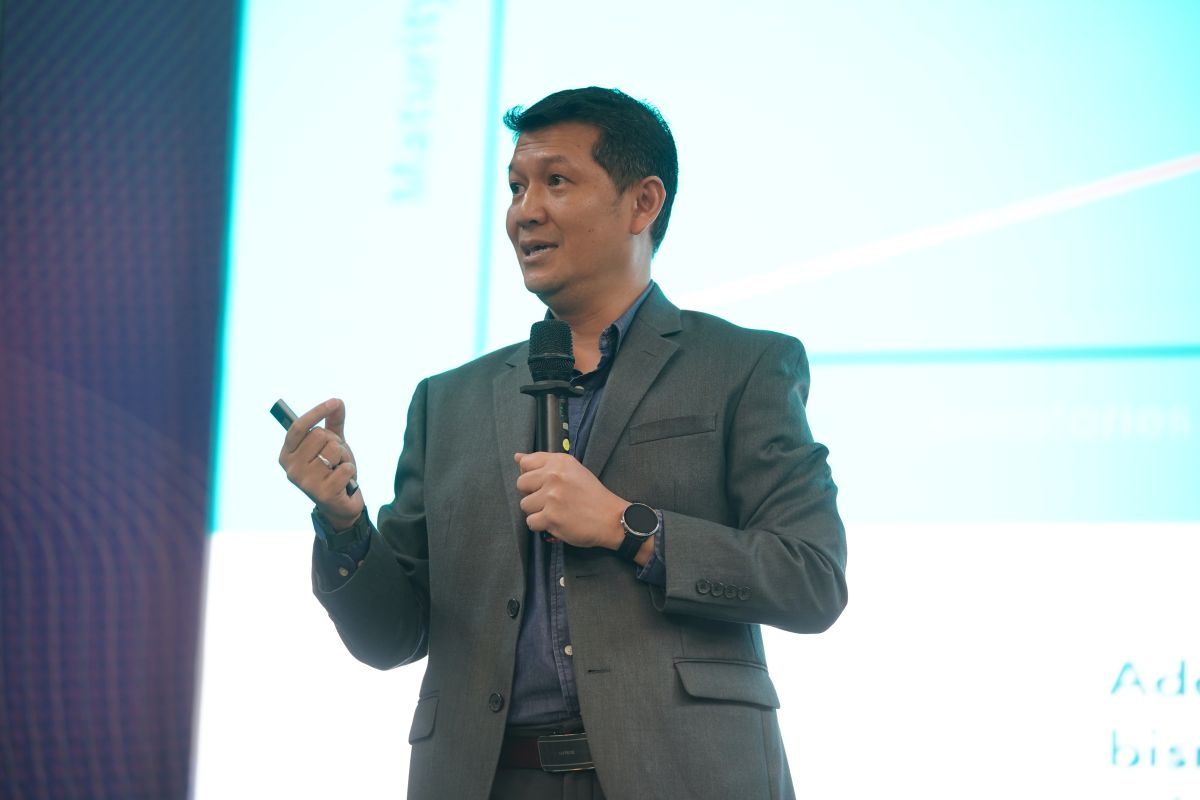LPPM ITB Invited Islamic Boarding Schools to Develop Integrated Agricultural Technology
By Adi Permana
Editor Adi Permana

BANDUNG, itb.ac.id—Institute for Research and Community Services (LPPM) ITB hosted a Karsa Loka Vol 007 talk show on Friday (7/5/2021). This time, LPPM ITB teamed up with the Design Ethnography Lab. FSRD ITB and RMI NU to present a special Ramadan edition titled "Islamic Boarding School Workshop: Social-Lab for Integrated Agriculture-Based Innovation."
In this event, the presentation focused on the theme "Integrated Agricultural Technology for Islamic Boarding School" and was guided by Dr. Abdulloh Hamid from RMI NU.
The first speaker, A. Zainal Abidin, Ph.D. from FTI ITB explained the Zero Waste Management (Masaro) system, which he hoped to see implemented in Islamic boarding school agriculture. The system processes waste into useful goods by processing residual, recycled, and decomposed waste. "Masaro reduces all forms of waste to zero," he said.
In a furnace, the residual waste is converted into processed ash products for planting media, anti-termite wood preservatives, and organic pesticides. Meanwhile, it is preferable to give recycled waste to collectors or to the recycling industry directly. Finally, using a Masaro catalyst, decomposed waste must be chopped and fermented. "One kilogram of decomposed waste can yield 12 liters of Special Liquid Organic Concentrate (KOCI) or Special Liquid Organic Fertilizer (POCI)," Zainal stated.
Zainal hoped that the Masaro movement would help to solve the waste problem, clean up the environment, increase food security, and provide students with entrepreneurship education. "This movement has the potential to transform Islamic boarding schools into agents of change and propagation for the people and country," he concluded.
The next presentation was given by Ramadhani Eka Putra, Ph.D. from SITH ITB. In his presentation titled "Waste Management Technology for Integrated Modular Agriculture", Ramadhani stressed the importance of getting a strategy to deal with the world's population explosion by 2050. He and his team developed the Black Soldier Fly (BSF) to combat it using the discipline of agricultural engineering.
According to Ramadhani, this type of fly can be used in Islamic boarding schools because it has a prepupa protein content of 44 percent and can minimize the mass of organic waste by 35-45 percent. "BSF is superior because it can handle all forms of waste, convert it to animal feed, compost it, and control other harmful flies," Ramadhani explained.
In addition to making recommendations for Islamic boarding schools in Indonesia, Ramdhani also discussed the findings of his study into the use of BSF. Garbage and organic waste from the community must be decomposed in a bioreactor by BSG larvae and the biomass can then be used for animal feed, aquaculture, and agricultural crops. Meanwhile, the waste is processed into fertilizer, which can then be reused by the community.
Reporter and Translator: Sekar Dianwidi Bisowarno (Bioengineering, 2019)


.jpg)

.jpg)
.jpeg)
